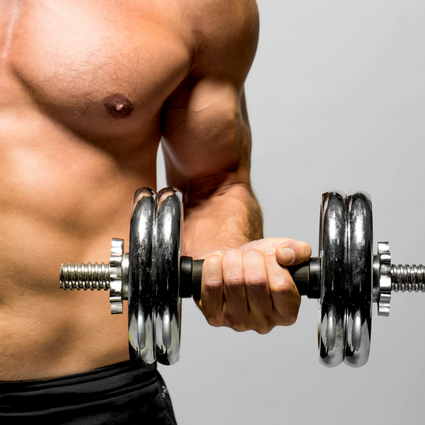Both athletes and everyday men are commonly – though not always verbally – concerned with their testosterone levels. Not only is the hormone linked with energy, sex drive and overall well-being, but low testosterone can also have a dramatic impact on your body composition.
It's also important to note that women produce testosterone as well, just at much lower levels. Clearly, then, testosterone is a pretty important chemical to the entire human experience. It is especially key for the fitness-minded individuals out there, however.
Based on this, it's really not all that surprising that lots of different theories have popped up regarding foods and practices that can impact testosterone levels for good or bad.
One of the factors that has been a common topic of discussion over the years has been the potential effects of a high protein diet. Let's jump right into that question, then. Does a high protein diet affect testosterone levels?
The Initial Findings
For a long time, it was just assumed that a high-protein diet had a positive impact on your testosterone levels – likely because of the connection between a high protein diet and muscle mass.

A 2007 study, published in the Journal of the American Academy of Dermatology, however found preliminary evidence to contradict this view. In the study, the researchers found that a high-protein diet actually slightly lowered testosterone levels.
Now, before you cut your protein intake back to nothing, it's important to realize a few things about this study: first, it was conducted with skin health in view. The researchers were only measuring testosterone levels as a way to monitor acne in the subjects. Exercise was not part of the equation.
Second, the testosterone levels likely dropped because concentrations of insulinlike growth factor-1 (IGF-1) increased. This is a known relation between testosterone and IGF-1. However, IGF-1 also contributes to muscle development. Finally, the decrease in testosterone levels was very, very small.
The Other Side
In 2010, a paper published in the journal Sports Medicine, reported that exercise – specifically of the strength training variety – has the potential to notably increase levels of free testosterone in your system. This, however, is dependent on your diet.
Previous research, for example, found that individuals who burned many more calories than they took in saw a sharp decrease in testosterone levels. This decrease was slowed, however when the subjects were fed a high-protein diet.
It must be stressed that the conditions used in the study were extreme – unlike anything you are likely to undergo. Not only were the subjects required to burn about 3940 calories each day but they did this while only eating about 1550 calories. Their sleep was also restricted to a mere 4.5 hours each night.
Putting It All Together
So, how are we to interpret all of these seemingly unrelated and somewhat strange studies? While a high-protein diet may cause a very slight decrease in testosterone in sedentary individuals, it causes in increase IGF-1 which also stimulates muscle growth.
For the active people out there, though, a high-protein diet, combined with strength training can increase your testosterone levels.






